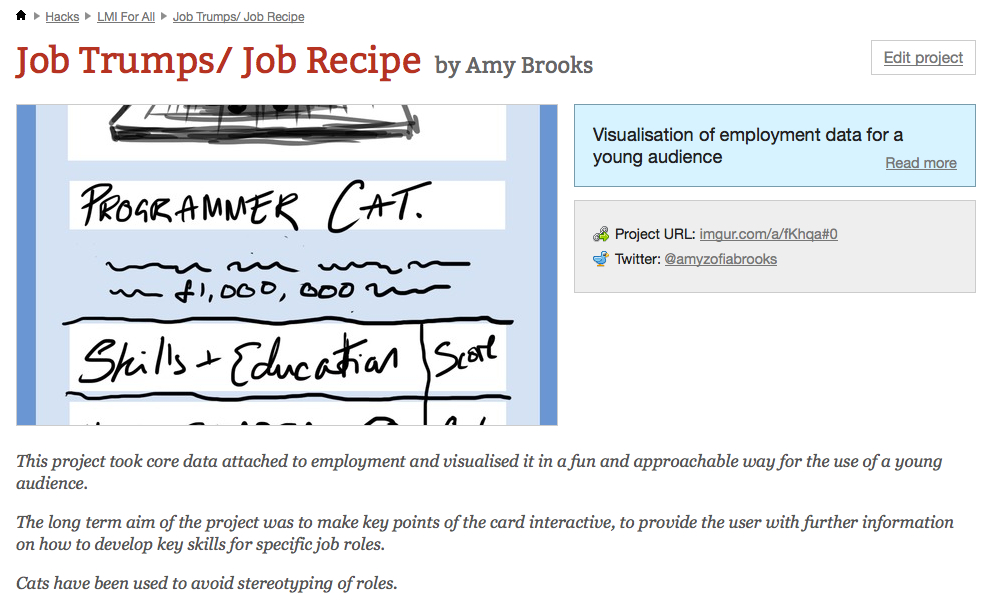Professional identities and Communities of Practice
Technology Enhanced Learning, at least form a research perspective, has always tended to be dominated by the education sector. Coming from a background in vocational education and training, I was always more interested in how technology could be used to enhance learning in work and in particular informal learning in Small and Medium Enterprises.
Much early work in this area, at least in Europe was driven by a serious of assumptions. We were moving towards a knowledge economy (remarkable how quiet that has gone since the economic crash) and future employment, productivity and profitability, required higher levels of skills and knowledge win the workplace.. Prior to the rise of the World Wide Web, this could be boosted by enhancing opportunities for individual learning through the development of instructional materials distributed on disc or CD ROM. Interestingly this lead to much innovative work on simulation, which tended to be forgotten with the move to the online environment offered by the World Wide Web.
One of the big assumptions was that what was holding back learning in enterprises was the cost of releasing employees for (formal) training. Thus all we had to do was link up universities, colleges and other training providers to enterprises through providing courses on the web and hey presto, the problem would be solved. Despite much effort, it didn’t really work. One of the reasons I suspect is that so much workplace knowledge is contextually specific and rooted in practice, and trainers and particularly learning technologists did not have that knowledge. Secondly it was often difficult to represent practice based knowledge in the more restricted learning environment of the web. A further issue was a failure to understand the relationship between learning nd professional development, work practice and professional (or occupational) identities. That latter issue is the subject on a paper entitled Facilitating professional identity formation and transformation through technology enhanced learning: the EmployID approach, submitted by my colleagues from the EmployID reject, Jenny Bimrose, Alan Brown, Teresa Holocher-Ertl, Barbara Kieslinger, Christine Kunzmann, Michael Prilla, Andreas P. Schmidt, and Carmen Wolf to the forthcoming ECTEL conference. Their key finding is that there is “a wide spectrum of how actual professional identity transformation processes take place so that an ICT-based approach will not be successful if it concentrates on prescribing processes of identity transformation; rather it should concentrate on key activities to support.” They go on to say that “ this is in line with recent approaches to supporting workplace learning, such as Kaschig et al. (2013) who have taken an activity-based approach to understanding and supporting collective knowledge development.”
The following short excerpt from the paper explains their understanding of processes of professional work identity formation:
“Professional work identities are restructured in a dynamic way when employees are challenged to cope with demands for flexibility, changing work situations and skill needs (Brown, 1997). The work activities of practitioners in Public Employment Services (PES) need to be trans- formed due to the changing nature of the labour market. As their roles change, so do their professional identities. Work identities are not just shaped by organisations and individuals, but also by work groups (Baruch and Winkelmann-Gleed, 2002) or communities of practice (Lave and Wenger 1991; Brown, 1997; Ibarra, 2003). PES practitioners in particular need to develop multi-dimensional (individual and collective) professional identities to cope with socio-economic and technological change (Kirpal, 2004). This shift is underpinned by the increased importance of communica-tions skills, a willingness to engage in learning and reflexivity, while reflection on experience over time may be particularly significant in the build-up of implicit or tacit knowledge as well as explicit knowledge (Eraut, 2000). At the individual level, emerging new demands and associated skills shifts generate a potential for conflict with traditional work orientations and associated values, norms, work ethics and work identity patterns of employees. One important focus for support are individuals’ strategies for dealing with such conflicts. While any identity formation process has to be realized by the individual, the process of acquiring a work identity also takes place within particular communities where socialization, interaction and learning are key elements. Therefore, supporting networks, of ‘new’ communities of practice (Lave, 1993; Wenger, 1998; Billett, 2007) and feedback from other practitioners are important aspects on which to focus.”
References
Baruch, Y. & Winkelmann-Gleed, A. (2002). Multiple commitments: a conceptual framework and empirical investigation in a Community Health Services Trust, British Journal of Management, Vol. 13, No. 4, pp. 337-357.
Billett, S. (2007). Exercising self: learning, work and identity. In: Brown, A.; Kirpal, S.; Rauner, F. (eds). Identities at work. Dordrecht: Springer, pp. 183-210.
Brown, A. (1997). A dynamic model of occupational identity formation. In: Brown, A. (ed.) Promoting Vocational Education and Training: European Perspectives. Tampere: University of Tampere, pp. 59-67.
Eraut, M. (2000). Non-formal Learning and Tacit Knowledge in Professional Work. British Journal of Educational Psychology, Vol. 70, No. 1, pp. 113 – 136.
Ibarra, H. (2003). Working Identity: Unconventional Strategies for Reinventing Your Career.Boston, MA: Harvard Business School Press.
Kaschig, A., Maier, R., Sandow, A., Lazoi, M., Schmidt, A., Barnes, S., Bimrose, J., Brown, A., Bradley, C., Kunzmann, C., Mazarakis, A. (2013). Organisational Learning from the Perspective of Knowledge Maturing Activities. IEEE Transactions on Learning Technol- ogies 6(2), pp. 158 – 176
Kirpal, S. (2004) “Researching work identities in a European context”, Career Development International, Vol. 9, No. 3, pp.199 – 221
Lave, J. (1993). The Practice of Learning. In S. Chaiklin and J. Lave (eds) Understanding Practice: Perspectives on Activity and Context, Cambridge: University of Cambridge Press.
Lave, J. , & Wenger, E. (1991). Situated learning. Legitimate peripheral participation. Cambridge, England: Cambridge University Press.
Wenger, E. (1998). Communities of practice: Learning, meaning, and identity. Cambridge: Cambridge University Press.

